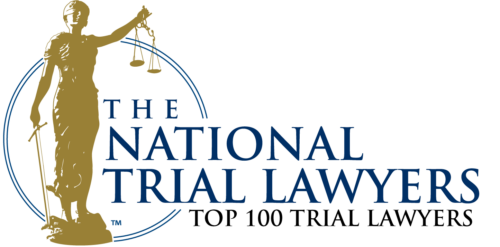Serious accidents occur in workplaces every day in Pennsylvania. Workers who are injured while on the job have many questions about their legal rights. More importantly, they are concerned about how they will financially manage if they are unable to work, especially when they have mounting medical costs on top of their usual expenses. Injured workers are also concerned about when they must report an injury suffered on the job. Below, our experienced Philadelphia workplace injury attorney reviews what you should do and what your legal options are if you are injured at work.
Report an Injury in a Pennsylvania Workplace Immediately
In Pennsylvania, workers who were injured in the course of their employment have 120 days to notify their employer. However, our office strongly recommends immediately letting your employer know if you suffered any work-related injury or illness. Any delay in reporting your injury could seriously harm your chances of recovering any financial losses or damages you incurred because of the injury.
In any personal injury claim, it is crucial to trace the injury, and all subsequent damages related to it, to the accident or initial incident. By hesitating to report an injury, you risk opening a door for the defense to argue that your injury was not the result of the accident. Also, crucial evidence could be lost. Prevailing in any injury claim requires detailed medical documentation and compelling evidence.
Personal Injury Lawsuits Against Your Pennsylvania Employer after a Work Accident
In Pennsylvania, workers who are injured on the job are typically prohibited from filing a lawsuit directly against their employers for work-related injuries or accidents. The Pennsylvania Workers’ Compensation Act dictates the method and manner a hurt employee is permitted to seek compensation for their injuries. However, this is only in effect if the employer provides workers’ comp benefits to their employees. While Pennsylvania employers are required to carry workers’ compensation insurance, many do not, opening themselves up to criminal penalties and personal injury lawsuits if an employee suffers a work-related injury.
There are limited exceptions to the prohibition under the Pennsylvania law. For example, if your injury was the result of your employer engaging in conduct that was either willful or fraudulent. Some other exceptions include the following:
- Your employer failed to provide workers’ comp benefits
- The injury was the result of intentional or wrongful conduct
- A tort claim based on the ownership of the property
Proving any exception to the Pennsylvania Workers’ Compensation Act is fact-intensive. Our experienced Philadelphia on the job injury attorney will work to establish a theory of liability based on your situation. Typically, to prevail in a direct personal injury lawsuit, the injured employee must demonstrate that their employer engaged in a pattern of egregious conduct. For example, merely violating an OSHA safety standard probably does not constitute willful and negligent conduct. However, if there was a pattern of violations, falsified safety reports or inspections, then the employer’s actions could give rise to a personal injury lawsuit.
Suing Third Parties for Work-Related Injuries in Pennsylvania
Workers’ comp does not provide a means to be compensated for pain and suffering like a personal injury lawsuit does. Fortunately, the prohibition against filing a personal injury lawsuit only extents to your employer. Often, due to the nature of a work-related accident, other parties could be held responsible. It is essential, as stated above, to report the injury as soon as possible, so you can begin building your case against all responsible parties. Waiting for days, weeks, or months will jeopardize your case.
While employers are usually shielded from liability, people such as contractors, subcontractors, property owners, other employees, and product manufacturers are not. If you are injured in a work-related accident, our Pennsylvania personal injury attorney will thoroughly investigate the circumstances surrounding your injury to determine if any third parties share accountability.
Lawsuits against third parties allow the injured worker to seek compensation for financial losses such as medical bills and lost income. More importantly, an injured employee is entitled to seek compensation for non-economic damages, such as pain and suffering.
Because injuries occur for a variety of reasons, it is vital to begin investigating your accident as soon as possible. If a subcontractor negligently operated a piece of heavy equipment that caused your injury, gathering witness statements will help prove the negligent conduct. Additionally, if the machinery was misused, or safety protocols were ignored, examining the equipment as close to the time of the accident as possible will likely produce better evidence than if you wait weeks to report the incident.
No matter how your injury occurred, the sooner our office can begin our examination of the facts and evidence, the better your chances of suing a third party. Defective machinery could be repaired, replaced, or relocated if you hesitate to pursue a claim immediately.
Call Our Pennsylvania Work-Related Injury Attorney for a Free Consultation
Work-related injuries in Pennsylvania are often devastating. The medical expenses and costs incurred are often compounded by an employee’s inability to work and earn an income. While an employee might be able to seek compensation through a workers’ compensation claim, if the injury is significant, the benefits are rarely sufficient. To protect yourself and your family, it is critical to report your injury to your employer immediately and to retain the services of our Philadelphia personal injury attorney. At the Reiff Law Firm, our experienced lawyers and staff understand the complications that accompany a work-related injury. We are determined to fight to get you the most compensation possible. To schedule a free consultation to review all your options and legal rights, call the Reiff Law Firm at (215) 709-6940.
Related Posts
- Who is at Fault in a Rear-End Collision Involving 3 Cars in PA?
- Can Victims of Intentional Truck Accidents Get Insurance Money?
- Do Airbags Shoot Metal Fragments at You When They Go Off?
- Are Insurance Adjusters Who Act in Bad Faith Personally Liable?
- Will Courts Permit Secret Settlements in Product Liability and Personal Injury Matters?















